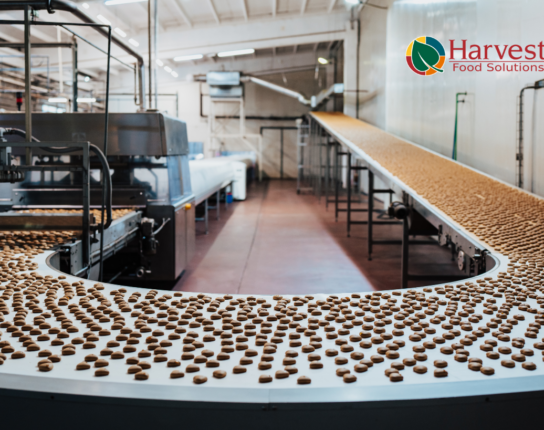Optimizing Food Manufacturing Efficiency with Microsoft Dynamics 365 Business Central’s Demand Forecasting and Planning
In the fast-paced and competitive world of food manufacturing, accurate demand forecasting and effective planning are essential for maintaining operational efficiency and meeting customer demands. Microsoft Dynamics 365 Business Central offers powerful demand forecasting and planning tools that help food manufacturers streamline operations, reduce waste, and boost profitability.
Why Demand Forecasting and Planning Matter in Food Manufacturing
For food manufacturers, effective demand forecasting and planning are critical for several reasons:
- Minimizing Waste: Accurate forecasts reduce overproduction, helping to minimize waste and improve sustainability.
- Inventory Optimization: Strategic planning ensures optimal inventory levels, balancing stock availability and minimizing storage costs.
- Meeting Customer Expectations: Reliable forecasts ensure timely deliveries, enhancing customer satisfaction.
- Efficient Resource Allocation: Proper planning helps maximize the use of labor, raw materials, and production capacity.
How Microsoft Dynamics 365 Business Central Enhances Demand Forecasting and Planning
- Leveraging Microsoft Copilot AI
Microsoft Dynamics 365 Business Central integrates Microsoft Copilot AI to analyze historical data and predict future demand trends. This predictive capability helps food manufacturers anticipate market shifts and adjust production schedules accordingly.
- User-Friendly Interface and Actionable Insights
Business Central features an intuitive interface, allowing managers to easily access and analyze forecast data. Its dashboards and reports provide actionable insights that facilitate informed decision-making.
- Scenario Planning for Better Preparedness
The system supports scenario planning, enabling manufacturers to create multiple forecast scenarios based on various assumptions. This flexibility helps prepare for market fluctuations and mitigate risks associated with sudden demand changes.
- Real-Time Data for Accurate Forecasting
Real-time data integration ensures that forecasts are always based on the most up-to-date information. With all systems connected, food manufacturers can eliminate guesswork and complicated formulas, making informed, real-time decisions—particularly vital when managing perishable goods.
Real-World Application of Demand Forecasting in Food Manufacturing
Let’s look at how a bakery manufacturer, producing a range of bread, pastries, and baked goods, can benefit from Business Central’s demand forecasting features:
Challenge: Managing Perishable Products with Variable Demand
This bakery faces common challenges in food manufacturing, including:
- Perishability: With a short shelf life, overproduction leads to waste, while underproduction can result in missed sales.
- Seasonal Demand Fluctuations: Products like holiday-themed pastries see spikes in demand at certain times of the year.
- Raw Material Lead Times: Ingredients like specialty flours or imported chocolates require long lead times and must be ordered well in advance.
Without accurate demand forecasting, the bakery risks either overproducing and wasting products or underproducing and losing sales opportunities.
How Microsoft Dynamics 365 Business Central Solves These Issues:
- Historical Data Analysis: The bakery can use Business Central to analyze historical sales data. For example, the system can show how many croissants or artisan breads were sold in the past holiday seasons, generating accurate demand forecasts for the upcoming months.
- Inventory Optimization: By aligning inventory with forecasted demand, the bakery can prevent overstocking and spoilage. If forecasts show lower demand for a specific product, such as a pastry, the system suggests reducing orders for ingredients like fruit fillings, minimizing waste.
- Production Planning: Business Central’s production planning ensures that enough products are made to meet demand spikes without overproducing. For example, if the system predicts a 30% increase in demand for seasonal cakes during the holidays, the bakery can adjust production capacity and order appropriate ingredients in advance.
- Supplier Management: The bakery sources ingredients from suppliers with long lead times, such as an imported vanilla supplier with a three-month lead time. Business Central integrates supplier lead times into demand forecasts, ensuring the bakery places orders for critical ingredients in advance.
- Seasonal Trend Analysis with AI: Using Microsoft Copilot AI, the bakery can forecast seasonal product demand spikes, like pumpkin-spiced muffins in the fall or heart-shaped cookies for Valentine’s Day. This data enables the bakery to align marketing efforts and production schedules, ensuring they meet demand without overproducing.
How Harvest Food Solutions Can Help
Microsoft Dynamics 365 Business Central’s demand forecasting and planning features are invaluable for food manufacturers looking to optimize their operations, reduce waste, and remain competitive. By implementing this robust ERP solution, manufacturers can experience significant cost savings, improved operational efficiency, and a stronger market presence.
Ready to transform your food manufacturing operations? Let Harvest Food Solutions help your team leverage the power of Microsoft Dynamics 365. Our experienced team comes from the food industry, so we understand the challenges you face and are passionate about helping your business grow. Learn more about Harvest here.










